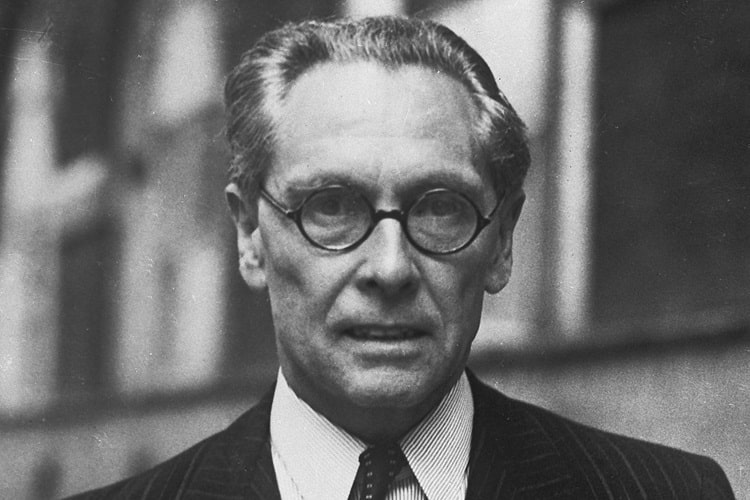Celebrating life and legacy of Philip Noel-Baker

Philip Noel-Baker (1 November 1889 – 8 October 1982) was a British politician, diplomat, academic, athlete, and renowned campaigner for disarmament.
Life and Career
Philip Noel-Baker was born on November 1, 1889, in Brondesbury, London, England. He came from a distinguished family, with his father, Joseph Allen Baker, being a scholar and his mother, Edith Whittaker, an educationalist. Noel-Baker grew up in an environment that valued education and public service.
Noel-Baker’s education was exceptional. He attended Westminster School in London and then won a scholarship to King’s College, Cambridge. He excelled academically and was deeply interested in sports, particularly athletics. He was a talented middle-distance runner and competed in the 1912 Stockholm Olympics. He graduated from Cambridge in 1912 with a degree in history.
Noel-Baker served in World War I, and his experiences during the war had a profound impact on him. He became an advocate for pacifism and disarmament, principles he held throughout his life.
After the war, he pursued an academic career, becoming a lecturer in history at King’s College, Cambridge, and later at the University of London. He was a prolific writer and authored several books, primarily on disarmament and international relations. Despite his academic pursuits, Noel-Baker continued to compete in athletics and even represented Great Britain in the 1920 Antwerp Olympics. He was an advocate for amateurism in sports and played a significant role in the Olympic movement.
Noel-Baker’s most significant contributions came in the realm of diplomacy and international relations. He was elected as a Member of Parliament (MP) for Coventry in 1929 and served in various government positions. In 1945, he was appointed as the Minister of State for Commonwealth Relations in Clement Attlee’s government. In 1959, Philip Noel-Baker was awarded the Nobel Peace Prize for his outstanding efforts in promoting disarmament and peace. He played a pivotal role in the creation of the Pugwash Conferences on Science and World Affairs, a series of meetings aimed at reducing the threat of nuclear war.
Noel-Baker was a strong advocate for the United Nations and served as the President of the United Nations General Assembly from 1947 to 1948. He continued his political career and was a key figure in the British Labour Party. He served as the Secretary of State for Commonwealth Relations and as a Minister of State for Foreign Affairs. Philip Noel-Baker passed away on October 8, 1982, in London, England.
Award and Legacy
Philip Noel-Baker was awarded the Nobel Peace Prize in 1959 for his outstanding and extensive work in disarmament and international peace efforts. His unwavering commitment to advocating for peace and his involvement in initiatives like the Pugwash Conferences on Science and World Affairs contributed significantly to reducing the threat of nuclear conflict and promoting global peace.
Philip Noel-Baker’s legacy primarily revolves around his tireless efforts and advocacy for peace and disarmament. He played a pivotal role in shaping international discussions on nuclear disarmament and conflict resolution. His work with the United Nations and the Pugwash Conferences left an enduring legacy in the realm of international relations, inspiring future generations to work toward global peace.
Noel-Baker’s contributions to sports and the Olympic movement were notable. His participation in the Olympics as an athlete and his subsequent involvement in advocating for amateurism in sports left an imprint on the Olympic ideology. His belief in the power of sports to unite people and promote international understanding resonates with the Olympic values.
His tenure in various government positions and at the United Nations left a lasting impact on diplomatic relations. Noel-Baker’s work in government roles, including his efforts to strengthen Commonwealth relations and foreign affairs, contributed to shaping international policies and fostering cooperation among nations.
His dedication to public service, education, and the pursuit of peace continues to inspire individuals in various fields. Noel-Baker’s life serves as a model for aspiring politicians, diplomats, peace advocates, and scholars, encouraging them to work towards a world free from conflict and inequality.
Observer Voice is the one stop site for National, International news, Sports, Editor’s Choice, Art/culture contents, Quotes and much more. We also cover historical contents. Historical contents includes World History, Indian History, and what happened today. The website also covers Entertainment across the India and World.
Follow Us on Twitter, Instagram, Facebook, & LinkedIn

